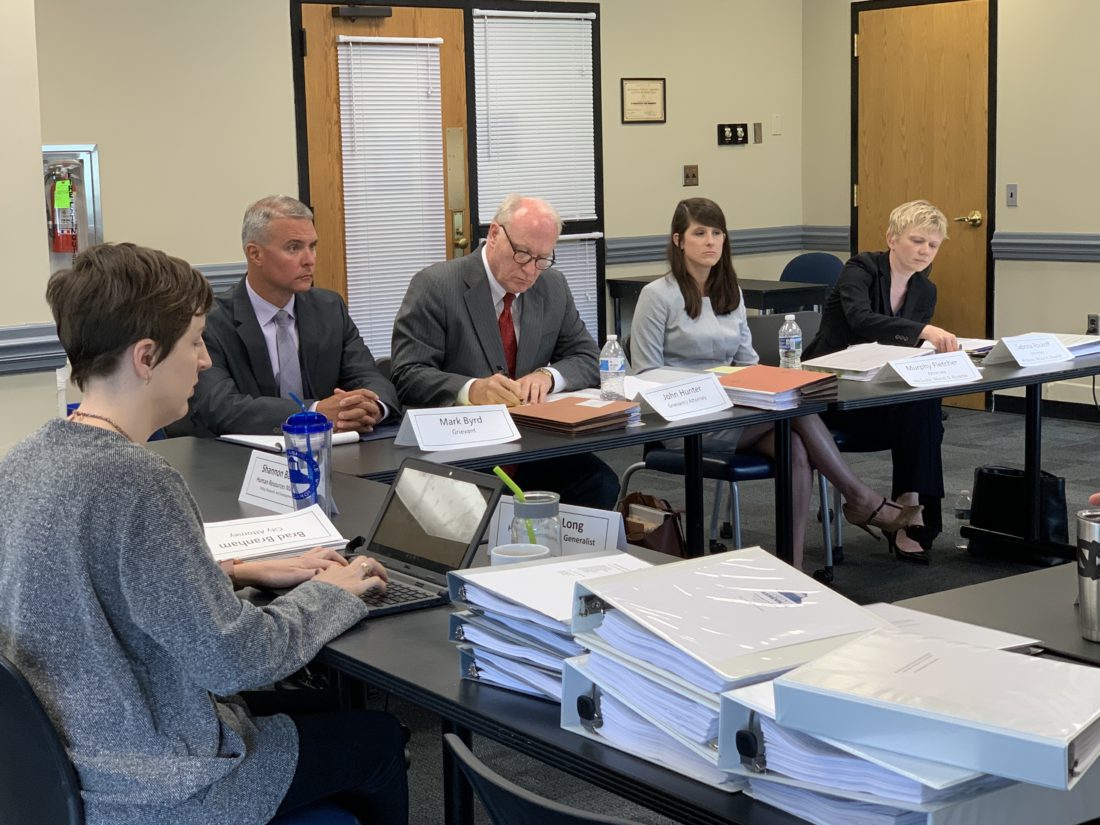The city of Asheville and its Civil Service Board may soon reach a consensus on some of the ambiguous definitions that have bogged down past proceedings over employee grievances. At its meeting of Jan. 12, Asheville City Council discussed a series of proposed substantive rule changes for the CSB, including formal definitions of specific terms and other hearing guidelines.
If adopted, the rules would outline a two-part test to determine if a dispute rises to the level of a CSB hearing. An employee must receive due process, newly defined as the opportunity to be heard by a department director prior to a decision, and the employee must be found in violation of a city or departmental policy, rule or code of conduct.
Asheville’s Civil Service Board was created in 1953, following the passage of the Civil Service Act by the N.C. General Assembly. Asheville is one of only six cities in North Carolina with a CSB; the entity only has jurisdiction over employment disputes among city employees, explained John Maddux, deputy city attorney.
Currently, the body has two main functions: to review promotional criteria for Asheville police and fire staff and hear certain employee grievances. In recent years, CSB members have ruled on several high-profile investigations, including the 2019 decision that former APD Chief Tammy Hooper was unjustified in her firing of Capt. Mark Byrd. In the wake of the 2017 beating of Johnnie Rush by former APD officer Chris Hickman, a city consultant said the CSB was “inefficient and requires improvement.”
Passage of the new rules would mark the culmination of a project that started in 2009, when revisions to the Civil Service Act required that such rules be enacted. A subcommittee was formed in 2014 to begin exploring options for changes, but that effort concluded without formal action. The latest changes were developed collaboratively by the CSB and city staff, Maddux said, with input from various employee organizations. At its December meeting, CSB members passed the new rules in a 4-1 vote, with only member Rick Devereaux in opposition.
“It may seem like these changes and definitions are very obvious,” Maddux said. “But the fact that we’re getting clarity around these things is going to hopefully take away the need for a lot of litigating about what these terms mean.”
Gwen Wisler, Council’s liaison to the CSB, applauded the work city staff and special interest groups such as the Police Benevolent Association and Fraternal Order of Police had done to reach consensus on the proposed changes. “This has been a long time coming, and I really think it’s going to pave a smooth path forward,” she said.
But Council member Kim Roney criticized the lack of public engagement surrounding the changes. Members of Council’s Finance and Human Relations committees or its Boards and Commissions Committee were not consulted on the changes, she said, nor were they discussed with community partners like the Racial Justice Coalition and the NAACP, which have engaged with the CSB on past litigation.
“When we have such a potentially significant context, I’m looking for us to have those community partners at the table,” Roney said. “I’m inclined to vote no at this time because it hasn’t had the depth of analysis it could have.”
Because North Carolina’s virtual meeting procedures require emailed public comment to be accepted up to 24 hours after the close of a public hearing, Council will formally vote on the new rules at its meeting of Tuesday, Jan. 26.




Roney thinks she’s a poll taker not a leader. It’s a representative democracy, Roney. Otoh, we could just have everyone vote on everything and fire you, which isn’t a terrible idea I guess.